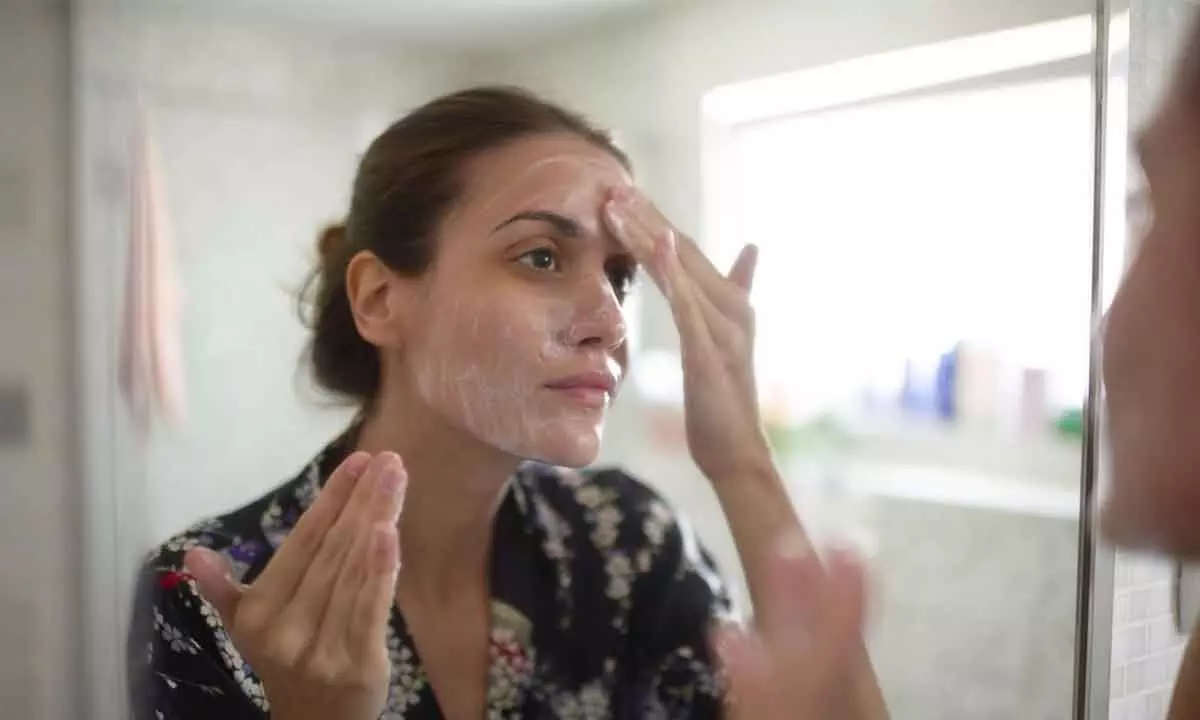Things that are secretly triggering your acne

The most common reason for acne problems is excess sebum production. Sebum is a waxy substance that is produced in the sebaceous glands. The face has the maximum sebum production, which is why most breakouts are on the face. When produced in excess, this oily substance causes blemishes, pimples, and boils on the face and other areas. Hormones, genetics, heat, and puberty are all factors that affect sebum production. Practising good skin care habits and taking care of your diet are a few effective ways to control sebum production
Acne is a skin problem which causes bumps, breakouts and boils on the skin, predominantly the face. Acne is caused by a number of factors, and it frequently necessitates professional intervention and care. Breakouts and flaring up of the skin can be due to some underlying issues, diet, hereditary factors and even pollution. Blemishes and scars can leave one perplexed about how to reduce inflammation. One needs to be well informed about what triggers their acne; this is especially important because, despite relentlessly trying to reduce acne, all efforts seem to go in vain. Shubhita Agarwal, Founder of Caring Compounds shares some common tips that can trigger your acne without you noticing!
Sebum production
The most common reason for acne problems is excess sebum production. Sebum is a waxy substance that is produced in the sebaceous glands. The face has the maximum sebum production, which is why most breakouts are on the face. When produced in excess, this oily substance causes blemishes, pimples, and boils on the face and other areas. Hormones, genetics, heat, and puberty are all factors that affect sebum production. Practising good skin care habits and taking care of your diet are a few effective ways to control sebum production.
Excessive use of makeup
Overusing makeup products can cause breakouts and irritation. Heavy-duty products like full-coverage concealers and foundations brand themselves based on the premise of long-wear but have ingredients which can cause massive flair-ups. Certain elements present in the products can clog pores, causing sebum accumulation and acne. One has to be mindful and vigilant while choosing products; checking the ingredient lists, testing before use and avoiding long hours of makeup are imperative precautions to take.
Tampering with your hands
A giant pimple can be irresistible to pop, which is why most people become impatient and tug on their face, squeezing out the sebum and oil from the face. You end up doing more damage because popping a pimple can leave you with scarring and more blemishes. It is advisable to not tamper with the face at all. Using abrasive exfoliators and scrubbing can also negatively affect the skin, causing irritation and inflammation.
Most people unknowingly touch their face throughout the day; this can also cause the transfer of bacteria, causing breakouts.
Dandruff
Dandruff can be a common trigger for acne. Dandruff is an indication of dry skin where there is a lack of moisture. This triggers the sebum oil production, which makes the skin oily, consequently causing breakouts. Another reason dandruff affects acne is that flakes from the scalp fall on the face, and if not cleaned promptly, acne develops in the facial areas.
Using an unsuitable cleanser
Yes, that's right! A cleanser could potentially be causing your breakouts. Like any product, a cleanser too has ingredients and chemicals. Many cleansers are infused with unwanted fragrances and oils that irritate the skin. A skin cleanser has direct contact with the surface of the skin. An abrasive cleanser having properties which cause rashes or irritation can cause long-term damage. Hence, one must evaluate and test out a skin cleanser before switching it up into a daily skincare routine.











